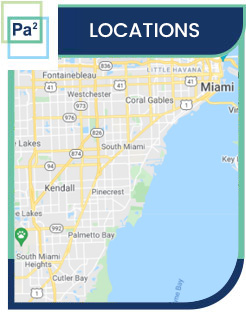When Should a Child See a Skin Allergist?
If a child has persistent skin issues like eczema, hives, itching, or allergic reactions, and these conditions cause discomfort or secondary infections, it’s recommended to consult a skin allergist. At Piniella Asthma + Allergy in Coral Gables and Palmetto Bay, FL, board-certified Allergist Dr. Carlos Piniella MD can evaluate the child’s allergy needs and create a comprehensive treatment plan. Contact us today or visit us online to book an appointment. We have convenient locations to serve you in Coral Gables FL and Palmetto Bay FL.


Table of Contents:
What are pediatric allergies?
When should a child see an allergist?
What age do allergies start in kids?
How is an allergy test done on a child?
Allergy sufferers can experience a variety of symptoms, which can range from inconvenience to severe limitations on the quality of life. Fortunately, there are ways to lessen the impact of allergies; knowing what to do in the event of an allergic reaction is key. An allergy specialist, such as an allergist, can evaluate, diagnose, treat, manage, and help prevent allergies and allergic symptoms, so it is imperative to utilize their expertise when experiencing allergy-related symptoms.
Pediatric allergies refer to the allergies common in childhood, such as allergies to food, pet dander, dust mites, and pollen. Pediatric allergies have increased in prevalence in recent years, and there are many misconceptions about them. Many people think that they are just a minor inconvenience, but allergies can actually be quite serious. Children with allergies often experience respiratory problems, such as wheezing, coughing, and chest tightness, as well as problems with their skin, such as eczema and hives. In some cases, allergies can even be fatal.
Allergic reactions in children are not just limited to the “usual” suspects. The symptoms of allergic reactions can also be quite varied, depending on the allergen. There are many things that can cause an allergic reaction in a child, including things as harmless as household dust mites and foods like peanuts, tree nuts, milk, and eggs. Unfortunately, many allergens are now commonly found in many commonplace items, which can lead to excessive consumption of potentially allergenic foods and exposure to allergens in the environment.
A child should see an allergist if:
• Their allergies are causing symptoms such as:
• Chronic sinus infections
• Nasal congestion
• Difficulty breathing
• They experience allergy symptoms several months out of the year, such as hay fever
• Antihistamines and OTC medicines do not control their allergy symptoms or create unacceptable side effects, such as drowsiness
• Allergies are interfering with their ability to perform day-to-day activities
• Allergies decrease the quality of their life
They are experiencing warning signs of serious asthma such as:
• Struggling to catch their breath
• Wheezing or coughing, especially at night or after exercise
• Frequently short of breath or feel chest tightness
Allergies can develop in children at any age, even in babies as young as a few months, which is why allergy testing is typically available after six months. This includes food, environmental, and insect allergies. However, seasonal allergies, such as hay fever, can show up in children as young as 3 to 5 years of age.
There are several different allergy tests that can be performed on children, including skin prick tests, intradermal tests, blood tests, and patch tests. The type of allergen being tested for will determine the type of test administered. Skin prick tests involve placing a small amount of an allergen on the skin, then pricking the skin with a needle. Intradermal tests involve injecting a small amount of an allergen under the skin and are often used to test for penicillin or insect venom allergies. Blood tests test for antibodies present in the blood, and may be used for almost any type of allergy. Patch tests are similar to skin prick tests but without the needle. A small amount of an allergen is placed on the skin, then a patch is placed over it; the patch stays on the skin for 24 to 48 hours, after which time the patient returns to the allergist to have their skin evaluated.
If your child is experiencing allergies, bring them to Piniella Asthma + Allergy for professional care. Call us today to book an appointment with our child allergy specialist, or schedule one online! We have two locations: one in Coral Gables at 6705 SW 57th Avenue, Suite 520, South Miami, FL 33143; and one in Palmetto Bay at 9275 SW 152 Street, Suite 210, Palmetto Bay Village, FL 33157. We look forward to serving you! We serve patients from Coral Gables FL, Palmetto Bay FL, Westchester FL, Brownsville FL, Kendall FL, Pinecrest FL, Richmond West FL, and Goulds FL.

Additional Services You May Need
▸ Asthma
▸ Allergy Testing
▸ Food Allergies
▸ Immunotherapy
▸ Patch Testing
▸ Allergy Treatment
▸ Pediatric Asthma Specialist
▸ Pediatric Allergist
▸ Insect Bite Allergy
▸ Drug Allergy
▸ Seasonal Allergies
▸ Skin Allergy

Additional Services You May Need
▸ Asthma
▸ Allergy Testing
▸ Food Allergies
▸ Immunotherapy
▸ Patch Testing
▸ Allergy Treatment
▸ Pediatric Asthma Specialist
▸ Pediatric Allergist
▸ Insect Bite Allergy
▸ Drug Allergy
▸ Seasonal Allergies
▸ Skin Allergy


